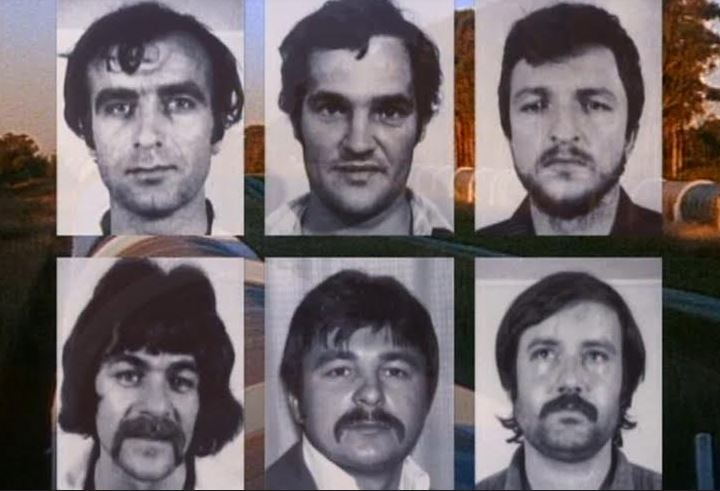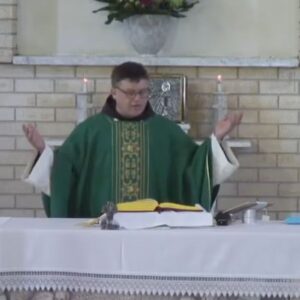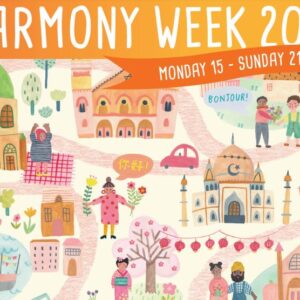In 1981 six Australian Croatian men (Max Bebic, Vic Brajkovic, Joseph and Ilija Kokotovic, Mile Nekic, and Tony Zvirotic) were convicted of terrorism related activities on clearly largely dubious evidence and sent to prison on a 15-year sentence each for acts of terrorism in Sydney. They have always maintained their innocence. This case has for many years been dubbed as a case of the greatest miscarriage of justice in the history of Australia. That label of miscarriage of justice did not originate from Australian Croatians, who had many reasons to be angry and bitter as this guilty verdict came at the time when the communist Yugoslavia machinery stopped at nothing when it came to destroying the Croatian name and Croatian people who in war (WWII) and in peace (post-WWII) stood for a free and independent Croatia – it came from others including members of Australia’s legal profession.
It took a Serbian imposter in Australia working for the communist Yugoslavia agenda, it took an Australian/NSW police “squad” that evidently assisted that imposter’s agenda to build a damming case against the Croatian Six, and it took a Supreme Court of NSW judge, Justice Victor Maxwell’s, among other possible failings in the case, his apparent and total belief in that the NSW Police could do no wrong as well as failing to reveal to the jury that one of the presented confessions by one of the Croatian Six was unsafe (as it was unsigned) to send six Croatian men to ruin and push the reputation of the Australian Croatian community deeper into darkness of being considered “nationalist extremists and terrorists” and despair thus executing a mighty favour for the oppressive communist Yugoslavia. Judge Maxwell also refused leave for the Croatian Six defence to summon police who had arrested a seventh Croatian that night in February 1979 when the Six were arrested and who was subsequently released by a Magistrate. “In his summing up, Justice Maxwell told the jury it was a matter of whether to believe thirty-nine police officers or the six defendants, and a question of who had the motive to lie. The fact that he had suppressed two examples of police giving false evidence didn’t seem to bother him. It was, he said, ‘black and white,’” (Hamish McDonald article “Held Captive By Cold War Politics”, 5 March 2021) (https://insidestory.org.au/held-captive-by-cold-war-politics/)
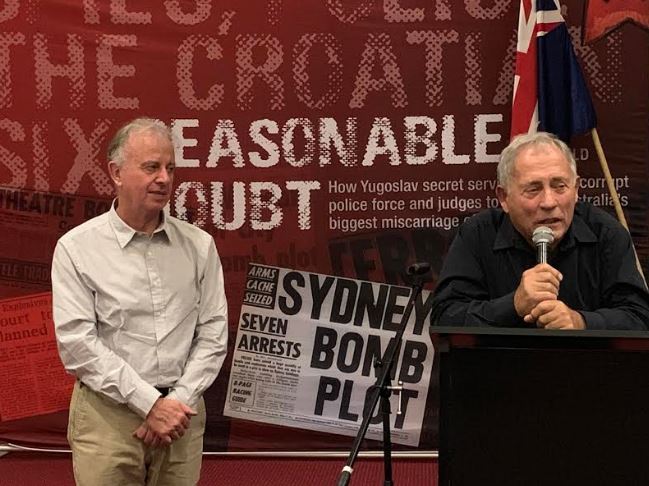
On 15 February 2021, human rights and criminal law barrister Sebastian De Brennan and solicitor Helen Cook, with opinion from David Buchanan SC launched an appeal, filed for a judicial inquiry in the Supreme Court of NSW on behalf of the Croatian Six case based on new evidence disclosed in the relatively recent release of secret ASIO documents (Australian Security Intelligence Organisation), in the recently published Official History of ASIO (John Blaxland and Rhys Crawley, 2016) and in Hamish McDonald’s book “Reasonable Doubt: Spies, Police and the Croatian Six” (2019) where the facts, after extensive and thorough research, are set out.
If successful, the guilty verdict for the Croatian Six could be overturned, more than 40 years after that terrible fact.
At the end of WWII Croatia’s hopes for independence from Yugoslavia were crushed and mass murders, mass communist Yugoslavia crimes against Croatian patriots followed, filling the so far discovered 1,700 mass graves of innocent people (at least 1,000 of them are now unearthed in Croatia) with mutilated, murdered, now decomposed human remains. This horror and oppression triggered a surge in Croatians fleeing communist Yugoslavia and settling in the United States, Canada, various South American countries, Australia and others. All the Croatians who settled in these countries were proud of their heritage and they continued their struggle for the freedom of Croatia in many ways. They established with their own work and funds and fortified many Croatian community clubs and Croatian Catholic Centres everywhere, Australia was no exception; indeed, it could be said Croatians in Australia were leading in these efforts to maintain traditions, culture and zest for independence of Croatia for all the decades that followed.
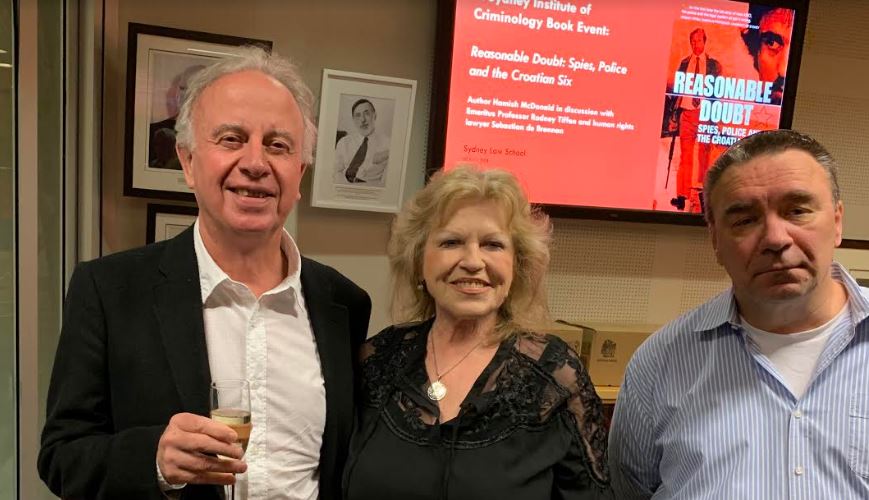
“It is understandable that some Yugoslav migrants of Croatian origin should continue to hope for the establishment of an independent Croatia and within a democracy like Australia they have a right to advocate their views so long as they do so by legitimate means,” Sir Robert Menzies, Prime Minister of Australia 27 August 1964. (Source: Australia, House of Representatives, Parliamentary Debates, No.HR.35, 1964, 679.)
Throughout the stormy and turbulent 1970’s random criminal acts ending in injury and destruction often occurred in Australia. Often the finger was pointed at Croatian patriots as being involved even though their protests against communist Yugoslavia had never escalated into violence; that is a historical fact. As such an unpleasant (to say it mildly) reputation of Australian Croatians built on lies fabricated by communist Yugoslavia Secret Service UDBa grew bigger, things got alarmingly serious against Croatians when in 1979 a man named Vico Virkez walked into the Lithgow Police Station and gave the police a surprise tip-off that would lead to one of the longest criminal trials in Australia’s criminal history. Virkez was passing himself off in Lithgow as a Croatian migrant and worked at the local power station when he made a surprise confession at the Lithgow Police Station that he and his fellow members of his Croatian community were plotting a series of terrorist attacks in Sydney.
So in February 1979, NSW Police announced that a group of Croatians had been arrested in Lithgow and Sydney just before planting gelignite time-bombs in targets identified with the Yugoslav regime – including the 1600-seat Elizabethan Theatre in Newtown, where entertainers from Yugoslavia were about to perform.
The police swoop at the time was drummed up as an ideal and right mix of force and intelligence to grab terrorists and their explosives just in time – to save Australians! Raids on Virkez and his alleged accomplices in Lithgow and Sydney followed quickly and mercilessly.
Many questions were left unanswered despite the 1981 Supreme Court verdict. The Croatian informer Virkez who was the prosecution’s linchpin disappeared soon after he received a two-year sentence and while the trial against the Six was still afoot, on its tail end. In 1990 the Croatian Six were released from prison on the ground of good behaviour, having spent ten years in prison. In prison they had reportedly endured severe beatings, isolation and mental torture.
In 1991 the ABC TV Four Corners’ award-winning investigative journalist Chris Masters, went looking for Virkez and found him in the then Yugoslavia, in a village in Bosnia Herzegvina, discovering that he was a Serb, Vitomir Misimovic, who masqueraded in Australia as a Croatian nationalist having infiltrated the Australian Croatian Community as an operative of Communist Yugoslavia Secret Service (UDBa) whose main goal at the time was to destroy in any which way the Croatians abroad who were pursuing the idea of freedom for Croatia from communist Yugoslavia.
In the ABC TV Four Corners program on the Croatian Six in 1991 Chris Masters among other things said “…Tonight, the spy who came in from the cold… he disappeared from Australia 11 years ago after exposing a major terrorist plot. When Four Corners tracked him down, he confessed to perjury that cost six men a total of 50 years in prison… The man who used to be known as Vico Virkez was found in a farmyard in a very Serbian corner of Yugoslavia. This Balkan James Bond turned out to be a modest pig farmer with an immodest imagination…” Chris Masters said about the interview with Virkez: “It was a long conversation, Virkez has not spoken English for some time but one thing he made clear as he had made clear in a letter to Malcolm Fraser (Prime Minister of Australia) before the trial was that the evidence in his three statements was not his own.” Masters asked Virkez: “In the court was the evidence you gave all of the truth?” “No,“ Virkez replied. Masters: “Were you given any instructions by police about what to say?”. “I was told what I have to say there,” Virkez replied. “Did they make you tell lies?” Masters asked. “I did that because they say this is all true I didn’t know if it was true or not,” Virkez replied.
In court, in the case against the Croatian Six, Virkez had evidently kept to a script written by police. None of the six were guilty of the bombing conspiracy yet they served long prison sentences for it.
Three years after the Chris Masters Four Corners broadcast, NSW attorney-general John Hannaford decided against a review of the Croatian Six case reportedly on advice of two senior state government lawyers, Keith Mason and Rod Howie — advice still not public because of claimed legal privilege.
In 1990’s the secrets that Prime Minister Malcolm Fraser’s adviser Ian Cunliffe discovered began to leak but it was not until 2007 that these secrets revealed had taken the Australian investigative journalist and author, Hamish McDonald, on a quest for justice for Croatian Six.
In 2007, in the case of the killing of five Australian television newsmen at Balibo, in Portuguese Timor, in 1975, Hamish McDonald “spent two months in the old coroner’s court on Sydney’s Parramatta Road listening to former officials, signals intelligence operatives, Timorese civil war veterans and even former prime minister Gough Whitlam testify to what they knew. One witness was Ian Cunliffe, a former federal government lawyer who’d served on Justice Robert Hope’s late-1970s royal commission into the intelligence services. He had seen an Indonesian signals intercept concerning the Balibo deaths that he felt had been covered up.
Asked by his lawyer if he knew of other instances of intelligence being withheld from the government, Cunliffe instanced ‘a criminal trial in Sydney involving six defendants.’ Canberra officials had agreed to keep material from the prime minister, he said, and had been willing to make intelligence material disappear if it was subpoenaed by defence lawyers.
During the court’s morning tea break, I asked Cunliffe which case he was referring to. ‘The Croatian Six,’ he replied cryptically,” writes Hamish McDonald.
Framed – the untold story about the Croatian Six, by Hamish McDonald 2012 was Sydney Morning Herald’s first ebook, investigates the fate of six men jailed for up to a decade over plans to blow up a Sydney theatre in 1979 as part of a Croat terrorist plot.
Hamish McDonald spent months tracking down the surviving members of the Croatian six, the police and others involved in the case. His findings strengthen suspicions that these convictions are, as one former senior Australian official puts it, “a grave injustice”.
McDonald also investigates the role in the case of the Yugoslav state security service, which used Australian police and intelligence services as tools to blacken the reputation of Croatian-Australians as extremists.
According to McDonald, vital evidence in proving the innocence of the Croatian Six and Indonesian culpability in the murder of the Balibo Five was suppressed by the Australian federal government on the grounds of “national security.”
“In January 2018… I went to Canberra and found myself reading through two files on Virkez. They showed that he had been working with a UDBa handler in the Sydney consulate for six months before the arrests, speaking by telephone and meeting in Sydney, in all cases monitored by ASIO.
After the arrests (of Croatian Six), ASIO quickly concluded Virkez was the man working with the UDBa officer and circulated this information around state police forces through an intelligence channel. The reaction at NSW police headquarters was dismay. Assistant commissioner Roy Whitelaw contacted ASIO to say that if the men’s defence team became aware of this information, ‘it could blow a hole right through the police case.’
ASIO was initially inclined to let the NSW police reveal the information about Virkez as long as the source and wire-tapping involved were not revealed. It appears that Whitelaw opted not to pass it on, certainly not as far as crown prosecutor Shillington. With the court case set, ASIO then opted to throw a blanket around the evidence, persuading federal attorney-general Peter Durack to strenuously oppose the defence subpoenas during the trial and appeal.
Under its chief at the time, Harvey Barnett, ASIO tried to tone down its assessment of Virkez from ‘agent’ to mere ‘informant.’ Barnett wrote in the file that this reduced the likelihood of ASIO’s being accused of having been party to a miscarriage of justice. The Hawke government’s attorneys-general, Gareth Evans and Lionel Bowen, then signed off on moves to prevent Ian Cunliffe, by then secretary of the Australian Law Reform Commission, from raising his misgivings regarding the suppression of evidence about Virkez,” McDonald wrote in his March 5, 2021 article.
This cover-up was detailed in his book on the affair, Reasonable Doubt: Spies, Police and the Croatian Six, which was published in 2019.
What is also telling of a cover-up and miscarriage of justice for the Croatian Six is that when in 2010, Kevin Rudd’s Australian Federal Government released its White Paper on counter-terrorism, it was curiously surprising to discover that it omitted to mention from its list of terrorist attacks and major foiled attempts in Australia over the past 40 years the acts that the Croatian Six spent a total of 50 years in prison for! Australia’s White Paper on Counter-terrorism omitted to list that NSW police were said to have stopped the imminent bombing of Sydney’s Elizabethan Theatre during an event attended by up to 1600 people, the bombing of several city businesses and the cutting of Sydney’s water supply!
This government White Paper explains the nature of the terrorist threat to Australia within Australia’s broader national security context, sets out the Australian Government’s strategy for countering terrorism, and details the policy settings by which the Government will implement its counter-terrorism strategy. Since it did not mention the Croatian Six, since it did not boast how its counter-terrorist operations stopped that large terrorist act no terrorism was attempted by the Croatian Six nor committed. One may indeed hope, then, that the current judicial inquest/appeal against the 1981 conviction of Croatian Six will find the same as the 2010 Australian White Paper on Counter-terrorism and their convictions – quashed. Ina Vukic


